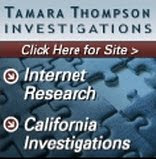From the EvidenceProf Blog:
"A few weeks ago, I posted an entry about Federal Rule of Evidence 615, which provides that
At the request of a party the court shall order witnesses excluded so that they cannot hear the testimony of other witnesses, and it may make the order of its own motion. This rule does not authorize exclusion of (1) a party who is a natural person, or (2) an officer or employee of a party which is not a natural person designated as its representative by its attorney, or (3) a person whose presence is shown by a party to be essential to the presentation of the party's cause, or (4) a person authorized by statute to be present.
That post dealt with the recent opinion in United States v. McClendon, 2010 WL 272878 (6th Cir. 2010), in which the Sixth Circuit found, inter alia, that defense counsel's private investigator was not an "essential" person under Rule 615(3). The recent opinion of the Tenth Circuit in United States v. Lott, 2010 WL 529310 (10th Cir. 2010), reveals how courts treat governmental case agents under Rule 615 and raises questions about the Rule's fairness.
In Lott, Johnny
Marton Lott sought a certificate of appealability from the Tenth
Circuit to challenge the district court's denial of his motion to
vacate, set aside, or correct his sentence for various drug-related crimes. Lott alleged, inter alia, that his
attorney rendered ineffective assistance by failing to seek
sequestration of the government's case agent, Detective Phil Long,
during his trial under Federal Rule of Evidence 615. According to the Tenth Circuit,"
Read more
Location Oakland, Ca - Private Investigator




